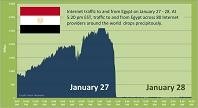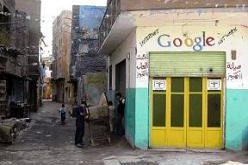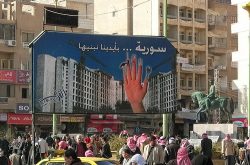Alice Hlidkova reports on the state of the media in Iraqi Kurdistan, where the reality does not always live up to the ideals promulgated by those who run the autonomous region.
Read More »Assessing the economic impact of the Egyptian uprising
Courtney C. Radsch discusses the interplay between the economic benefits of good communications, the willingness of Arab regimes to close down the Internet and mobile phone networks when they think their survival is at stake, and the role of multinational companies in the region.
Read More »Ruling the Arab Internet: An Analysis of Internet Ownership Trends of Six Arab Countries
Michael Oghia and Helen Indelicato research Internet ownership in key Arab countries, noting the differences in the extent of state control and in the levels of private and foreign investment in the infrastructure.
Read More »The Debate Over Al Jazeera English in Burlington, VT.r
William Youmans analyzes the debate in Burlington, Vermont, over whether the local cable TV company should or should not carry Al Jazeera English. He concludes that Burlington was a special case, rather than the harbinger of a breakthrough into the US market for AJE.
Read More »Cyberactivism in the Egyptian Revolution: How Civic Engagement and Citizen Journalism Tilted the Balance
Dr Sahar Khamis and Katherine Vaughn give a comprehensive overview of the role of new media in the overthrow of Mubarak and wonders whether the same tools will enable activists to keep up the pressure for change during what could a lengthy transitional period.
Read More »Can Al Jazeera English Leverage its ‘Egypt Moment’ into an American Audience?
Al Jazeera English is campaigning for greater access to the US market, building on positive publicity about its coverage of the Egyptian revolution. But research by William Youmans and Katie Brown suggests that substantial prejudice against AJE persists among segments of the American public, even after they are exposed to its coverage.
Read More »Digital Protectionism: Preparing for the coming Internet Embargo
Rami Khater sees the first signs that the United States and its allies might use their dominance of the Internet as a weapon against their enemies in the Middle East and argues that countries in the region would do well to develop indigenous Internet platforms.
Read More »Privileging the Private: Media and Development in Syria
Leah Caldwell examines coverage of 'development' by the privately owned Syrian daily al-Watan and finds that it is always discussed in a tightly controlled framework where a handful of participants are allowed to participate and determine exactly what or who needs to be developed.
Read More »Digital Shahid – From Broadcast Media to Citizen Journalism in Palestine
Gianluca Iazzolina traces developments in Palestinian media from the partisan-dominated 1990s to the more diverse forms of the 21st century. He concludes that information technologies are helping to bridge the gap between Israeli and Palestinian civil societies, allowing them to mirror each other in their most human dimension.
Read More »Saintly Soap Operas: An examination of three Coptic saint dramas
Omar Foda looks at the video hagiographies of three Coptic saints and finds that this little-studied genre draws heavily on the tropes of the Egyptian musalsal, including very colloquial Arabic language and exclusive use of melodrama in the presentation of emotions
Read More » Arab Media & Society The Arab Media Hub
Arab Media & Society The Arab Media Hub








